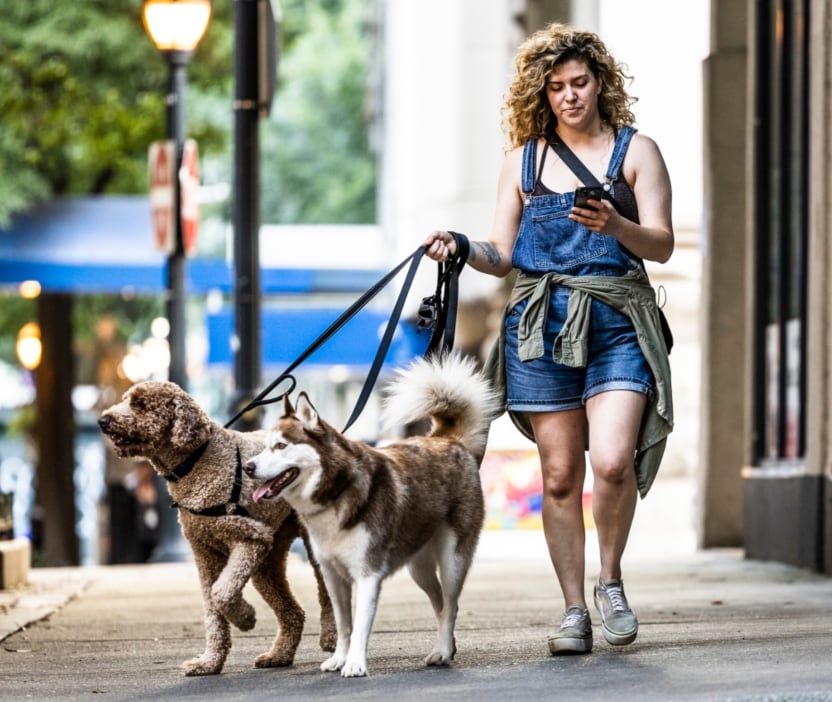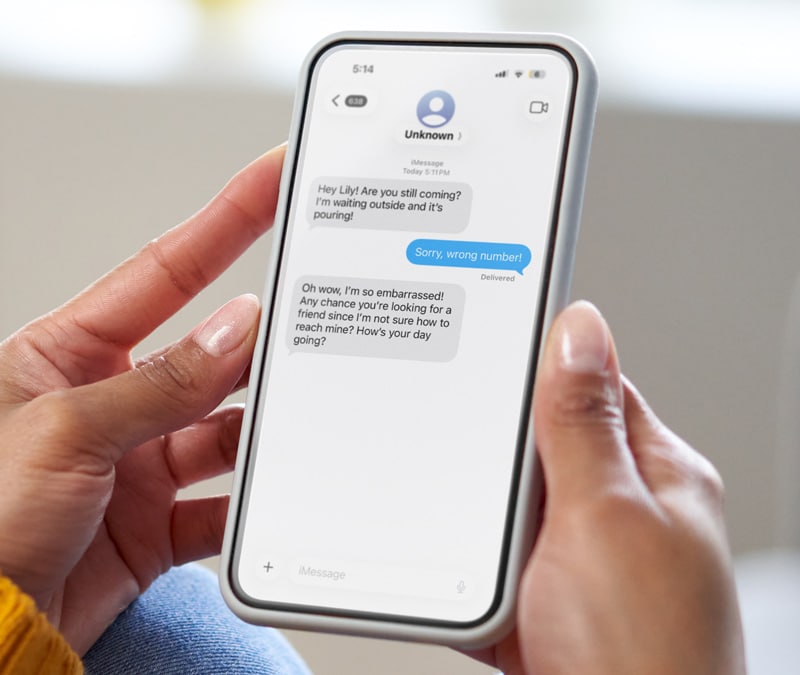All bark and no byte: Staying Cyber Safe during Walk Your Dog Month
As January marks National Walk Your Dog Month, pet parents across the country are grabbing their leashes and hitting the local park with their four-legged companions. Before you enjoy the jingle of collars and clickety-clack of paws on the pavement, there are steps you should take to ensure cybercriminals don’t walk away with your data.

This month marks the start of a new year, and with it comes resolutions surrounding better health and wellness. Millions across the globe will be looking to shed some extra weight. While some will be heading to the gym or out on a jog by themselves, others know that exercise can be more fun with a partner, even more so when it’s your dog.
National Walk Your Dog Month is the perfect opportunity for you and Fido to stroll to the nearest cafe to reach your daily steps goal. Yet, on your adventures, you may come across some unexpected dangers. Just like you would protect your pup from chasing down wasps or licking up suspicious treats on the sidewalk, it's crucial to also safeguard your online presence when you're out and about with your digital devices. Whether you're posting selfies or fetching information, there are some steps you should take to ensure that your lap dog and your laptop stay safe and secure.
The unleashed dangers of public wifi
Let’s say that you’re taking a stroll through the dog park. You have a leash in one hand, and your phone in the other, attempting to play some tunes. That’s when you stumble upon a tempting treat—free wifi. Before you connect, remember that public networks could leave you vulnerable to cyberattacks, and come with several other security risks. Don’t let them come back to bite you.
To keep your digital tail wagging, be sure to use these networks safely. Never access sensitive information while connected, stick to trusted, secure websites, and use a virtual private network. VPNs act like loyal guard dogs, encrypting your data and keeping it safe from prying eyes. This way, you can better prevent potential cybercriminals from sniffing around your online activities.
Beware of squirrels and digital payment options
Now imagine that you and your dog are headed home after a nice walk. You could go for a coffee, and they wouldn’t say no to a “puppuccino” either. So, you swing by a cafe.
In our increasingly touchless world, digital transactions have become the go-to for many. Payment apps offer convenience, but they may also sacrifice your privacy. Some apps have been found to share personal data from users with third parties.
Opt for secure payment methods and platforms that are well-known with a proven track record for protecting your information. Applications such as Venmo, PayPal, and Cash App are established forms of mobile payment. They are all generally safe to use, and most transactions that take place through them are legitimate.
However, cybercriminals still lurk on these sites, hoping to make a quick buck. There are extra steps you can take to avoid these scammers and ensure that if any unauthorized payments are made using your account, you can spot them right away. Keep an eye out for emails, texts, and messages that try to back you into a corner, pressuring you to send money.
Trust beagles, not beacons
You decided to do something a little different with your dog today and took them to a pet-friendly superstore. You’re ready to find some great deals, and they're eager to sniff up and down every aisle. Then, when you pull out your phone to look at the shopping list, you receive a pop-up ad for dog toys. Is this a lucky coincidence, or the result of Bluetooth Beacons?
A Bluetooth Beacon is a small wireless device that constantly sends radio signals containing small amounts of data to nearby smartphones and tablets. Some apps can listen for these transmitted signals and, when received, can trigger an action on your phone, such as push notifications, app actions, and prompts.
Beacons work by using Bluetooth Low Energy (BLE) and are typically found on the walls or ceiling of various public places such as shopping malls, airports, and even some retail stores. BLE signals contain metadata that is processed and used to determine the user’s location. In short, Bluetooth Beacons could lead to business owners and retailers tracking how customers move throughout stores and sending proximity-based marketing messages directly to your device.
So, how can you better protect your privacy? By understanding the security risks that come with using Bluetooth, always making sure to turn yours off when you’re not using it, and double-checking that your device isn’t discoverable in public areas.
Watch out for stray scams
You wouldn’t just walk around the block with your favorite furry friend in tow without first buying the proper equipment, right? Dog owners know just how important it is to give their canines the right treatment. This could include jackets, stylish collars, healthy treats, and much more. In today’s day and age, it’s common to find them all online—and scammers know that too.
Cybercriminals may try to lure you in with a good deal. They’ll send you an email appearing to be from a legitimate source, like your favorite online pet store, and tell you to click the attachment or embedded link. If you do, your information could be stolen, or malware could be installed on your device. They’re barking up the wrong tree. Don’t fall for their phishing attacks.
Be wary of text messages and emails that have misspellings and poor grammar, logos that don’t quite look right, and always use antivirus software, just in case. You can also double-check any messages you receive, or suspicious-looking websites with our free AI-powered scam direction tool, Norton Genie.
As you and your best friend embark on a new adventure, ensure a safe and enjoyable online experience by implementing these cybersecurity tips, and watching out for warning signs. Remember to protect your pooch and your digital paw print with the help of Norton products and services, start the new year off on the right track, and have a happy National Walk Your Dog Month.
Editorial note: Our articles provide educational information for you. Our offerings may not cover or protect against every type of crime, fraud, or threat we write about. Our goal is to increase awareness about Cyber Safety. Please review complete Terms during enrollment or setup. Remember that no one can prevent all identity theft or cybercrime, and that LifeLock does not monitor all transactions at all businesses. The Norton and LifeLock brands are part of Gen Digital Inc.





Want more?
Follow us for all the latest news, tips, and updates.